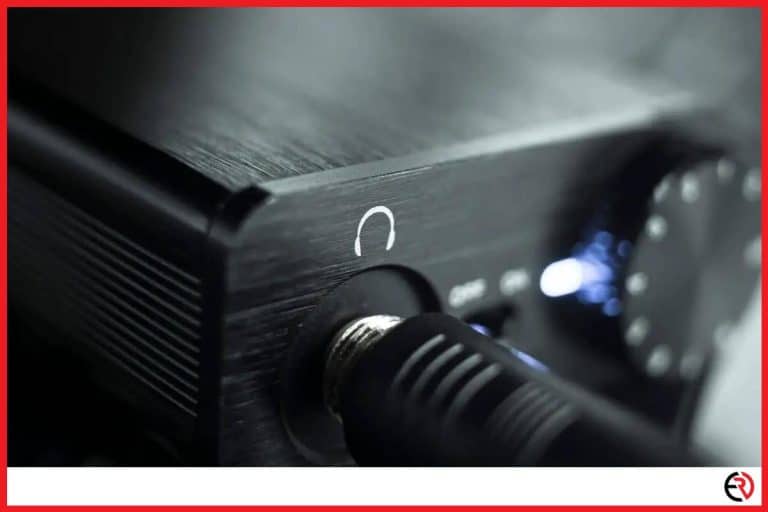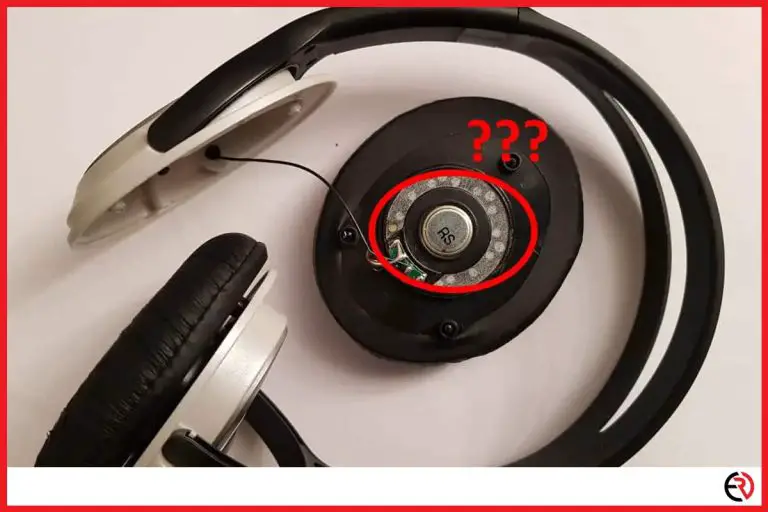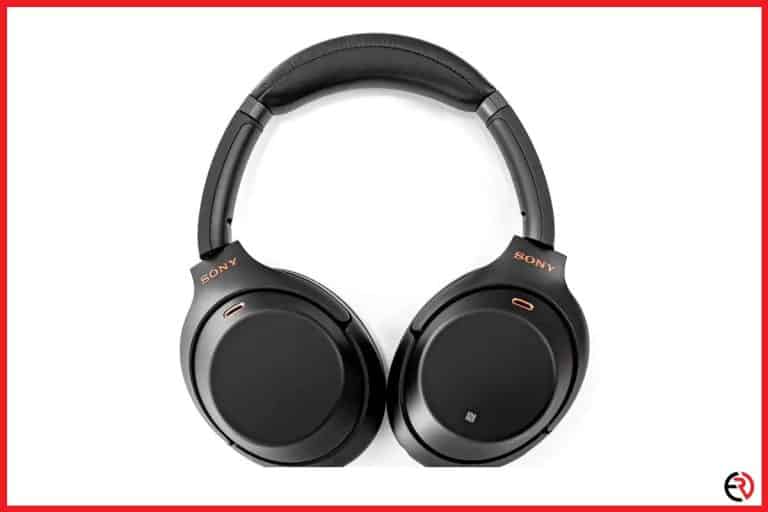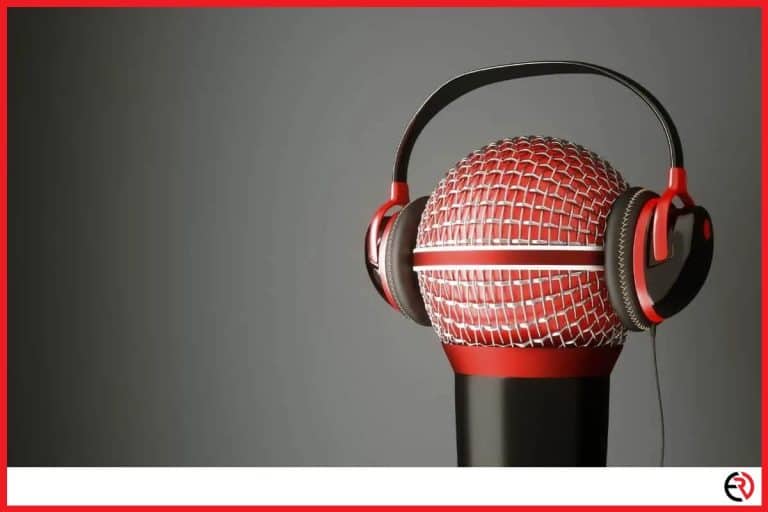Is It Bad to Wear Headphones All Day? (Follow these tips)
This post may contain affiliate links which means that, if you choose to make a purchase, I may earn a small commission at no extra cost to you.
Even before the quarantine, working from home was the norm for me. I don’t know how it works for most people, but I like to listen to music during work and keep my headphones on throughout the work hours. It keeps me focused. Even my friends who don’t work from home, like to wear headphones for long hours in the office to drown out the noise. However, prolonged exposure to loud music can’t be a healthy behavior.
When you wear headphones all day, it can cause hearing loss, skin infections, develop vertigo and even hear sounds that don’t exist. Fortunately, you can prevent or minimize those problems by using noise-canceling headphones, limiting volume, taking frequent breaks, and keeping the headphones clean.
Let’s check out why it’s bad to wear headphones all day.
Wearing headphones all day may cause hearing loss
According to the National Institute of Health, examination surveys and health interviews found that around 24 percent of adults in the United States between the age of 20 to 69 show signs of Noise-Induced Hearing Loss(NIHL). They also found that one in seven teens between the age of 12 to 19 years may suffer from the same problem.
Our eardrums vibrate when we are exposed to sound waves. The vibration gets transmitted to other parts of the ear including the cochlea with its several thousand inner and outer hair cells. These hair cells are very sensitive and part of the auditory system. They transmit an electronic signal to the brain that gets processed as sound. However, long exposure to loud volumes damages these cells and may cause temporary or permanent hearing loss.
Wearing headphones all day can cause skin infections
Wearing headphones all day can cause a lot of skin problems like dermatitis and acne. When we wear headphones for a long duration, the sweat and moisture collect on and around our ear cushions. I always buy an extra pair of velour and sheepskin ear cushions for my headphones. While they are incredibly comfy, they are also highly absorbent and amplify the problem.
When sweat and moisture settle down on the ear cushions, they are the perfect breeding ground for bacteria and yeast. They multiply over time, rub against your skin, and may cause dermatitis and an acne breakout. It gets worse when you have sensitive skin.
That’s why I like to avoid ear cushions that have a plastic or rubber surface. Different manufacturers use different sorts of additives while making rubberized or plastic covers for the cushions. These additives may cause contact dermatitis that may lead to skin irritation and inflammation.
Wearing headphones may cause vertigo
Researchers at the University of Utah found that one in 100 people have a rare congenital ear condition where thinning of the bone around the inner ear can cause vertigo when they hear certain sounds. Our inner ears rely on audio input so that we can maintain balance. That’s why it makes sense that certain frequencies can make us lose balance and cause vertigo.
Researchers also found that vertigo may be caused due to pressure build-up and loud noises. I don’t know if I suffer from the same condition, but I do feel dizzy sometimes after I get up from my workstation.
Wearing headphones for long hours may cause an external compression headache
When we wear headphones or any type of gear that creates artificial pressure around our heads, we are exposed to the risk of external compression headache. While some people may be more sensitive than others, it’s a problem we encounter after wearing headphones all day. If you have medical conditions like migraines, the problem is further amplified.
Wearing headphones all day may cause tinnitus
When we wear headphones for several hours, we play loud music quite close to our ears for a long time. As mentioned above, this may result in hearing loss and we are at the risk of developing symptoms like tinnitus. The symptom lets us hear phantom ringing in our ears even when there’s no external audio source. Think of those soldiers hearing a loud ringing after an explosion in movies.
Minimizing or preventing the dangers of wearing headphones all-day
Lower the volume – Wearing headphones all day isn’t the primary problem. It’s all about the volume. Sound is measured in decibels and playing music at loud volume for prolonged periods results in gradual hearing loss. The CDC recommends that you keep the volume low while listening to music for long periods of time. Anything above 70 dB can damage your hearing and when it’s over 100 dB, it can lead to hearing loss and ear injury within a few minutes.
Take a look at the following chart for an overview of the correlation between hearing loss and volume:
| Volume level | Effects on your ears |
| 0-60 dB | No hearing damage |
| 70-85 dB | Uncomfortable to your ears |
| 85-95 dB | Damage to hearing within less than an hour |
| 100-110 dB | Hearing loss within a few minutes |
| More than 110 dB | Immediate hearing loss, severe pain, and ear injury |
Follow the 60-60 rule – Doctors recommend following the 60-60 rule while we listen to our personal audio devices. The first 60 stands for volume while the other 60 stands for the duration. Our listening sessions on headphones should be at 60 percent volume and for one hour at a time. After that, we should take a break for a few minutes and take our time disinfecting the ear cushions to avoid skin diseases.
Avoid earbuds – While some people prefer on-ear and over-the-ear headphones, others like to plug in their earbuds. However, earbuds cause more damage since they sit close to the ear canal and amplify the volume even more. Moreover, they aren’t as good as headphones in noise isolation and that makes us crank up the volume even higher. That’s why earbuds should be used as little as possible. Avoiding them may be the best solution.
Conclusion
Modern conveniences like headphones and how we use them expose us to hearing loss and other risks. That’s why we should cap the volume and limit our time with them to stay healthy. I dread losing sensitivity on my ears since it would make me miss out on certain frequencies in my favorite songs. I hope this article was able to help you.







